We are pleased to announce a new Boot2Qt Embedded Qt5 image and toolchain using Yocto 3.0, Zeus. Below you will find the download links for the images as well as detailed instructions for the build. You can view a demo of the image running on our Nitrogen8M Mini SOM here.
For the Impatient
You can download the Boot2Qt Yocto images from here:
- For Nitrogen6x platform(nitrogen6x, nitrogen6x-lite, sabrelite, MAX, SOM2, SOM2_QP, nitrogen6_vm, nitrogen6QP_MAX):
- For Nitrogen7 platform:
- For Nitrogen8m platform:
- For Nitrogen8m Mini platform:
You can download the Boot2Qt Linux Toolchains from here (refer below for instructions on building the Windows toolchain):
- For Nitrogen6x platform(nitrogen6x, nitrogen6x-lite, sabrelite, MAX, SOM2, SOM2_QP, nitrogen6_vm, nitrogen6QP_MAX):
- For Nitrogen7 platform:
- For Nitrogen8m platform:
- For Nitrogen8m Mini platform:
Instructions on how to use the QBSP Toolchain in your Qt application development can be found here. As usual, you'll need to register on our site and agree to the EULA because it contains NXP content.
How to Burn
You can program the SW to eMMC using the instructions below: For i-mx6 and i-mx7: programming-emmc-on-i-mx6 For i-mx8 programming-emmc-on-i-mx8 You can also program the SW to SD Card or USB Stick via zcat and dd under Linux:
~$ sudo dd if=*boundary-image*.wic of=/dev/sdX bs=1M && syncIn addition, you can use the balenaEtcher utility to flash the eMMC, SD Card or USB stick via Windows or Linux: balenaEtcher
Build procedure
This image uses the zeus branch of the meta-boot2qt repo, which uses Qt version 5.15.0. To build the image, we recommend using a Docker Container so that you can build with a reproducible and stable build environment. Otherwise, you’ll need these packages installed as well as this repo tool that can be installed like this:
~$ sudo apt-get install repoThen create your build directory and clone the meta-boot2qt repo
~$ mkdir ~/b2qt && cd b2qt
~/b2qt$ git clone git://code.qt.io/yocto/meta-boot2qt.git -b zeusNext, run the b2qt-init-build-env script for your device. In this case we will use nitrogen8mm
~/b2qt$ ./meta-boot2qt/b2qt-init-build-env init --device nitrogen8mm
Then, export that device to the MACHINE variable
~/b2qt$ export MACHINE=nitrogen8mmSource the setup-environment script.
~/b2qt$ . ./setup-environment.sh
Finally, build the Boundary Boot2Qt Embedded Qt5 Image and Linux Toolchain ("boundary-b2qt-embedded-qt5-image" and "boundary-meta-toolchain-b2qt-embedded-qt5-sdk")
~/b2qt$ bitbake boundary-meta-b2qt-embedded-qbsp
Note: You can just build the Qt5 image by running "bitbake boundary-b2qt-embedded-qt5-image" To build a toolchain for Windows platforms add the following line to local.conf: SDKMACHINE = "i686-mingw32" After some time this should build the same image as above. The image file will deploy to tmp/deploy/images/{MACHINE}/b2qt-embedded-qt5-image-{MACHINE}.wic. The Linux toolchain will deploy to tmp/deploy/qbsp/meta-b2qt-embedded-qbsp-x86_64-{MACHINE}-5.15.0.qbsp. The Windows toolchain will deploy to tmp/deploy/sdk/b2qt-i686-mingw32-meta-toolchain-b2qt-embedded-qt5-sdk-{MACHINE}.7z.
Display support
Please make sure your platform includes the latest U-Boot:
This version of U-Boot supports the display configuration, allowing to use any of the following displays:
- HDMI display (up to 4k, 1080p recommended)
- 7" 1280x800 MIPI BD070LIC2_8M
- 8" 1920x1200 MIPI BD080MCC1
- 10" 1280x800 MIPI BD101LCC2_8M
Note
that we've noticed that the NXP HDMI driver is picky when it comes to custom display timings (sometimes refuses to set the clock). So if you are experiencing any issue with HDMI, please try entering the following commands in U-Boot in order to force the use of standard timings:
=> setenv cmd_custom 'setenv bootargs $bootargs drm_kms_helper.edid_firmware=HDMI-A-1:edid/1280x720.bin'
=> saveenvIf you have any issues, please email support@boundarydevices.com
 Laird Connectivity is now Ezurio
Laird Connectivity is now Ezurio/filters:background_color(white)/2024-10/Nitrogen8M_SBC-e1550277453741.png)
/filters:background_color(white)/2023-01/Nitrogen8M_SOM-e1550334029145.png.png)
/filters:background_color(white)/2024-10/Nit8M_Mini_SOM_Front.png)
/filters:background_color(white)/2024-10/Nitrogen8M_Mini_SBC-e1550333331743.png)
/filters:background_color(white)/2024-10/Nitrogen 8M Mini SMARC1.267 without wireless.png)
/filters:background_color(white)/2024-10/Nitrogen6X-e1550281048735-2.png)
/filters:background_color(white)/2024-10/Nitrogen6_MAX-e1550281424511.png)
/filters:background_color(white)/2024-10/Nitrogen6_SoloX-e1550281599325.png)
/filters:background_color(white)/2023-01/Nitrogen6-SOM-Transparent.png)
/filters:background_color(white)/2023-12/BD-SL-iMX6_New.png)